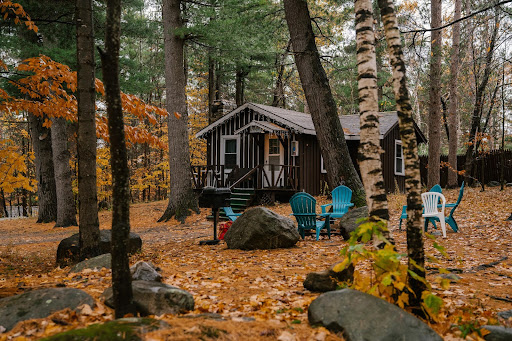As sustainability and self-sufficiency take centre stage in today’s world, “living off the grid” is no longer just an idea for a dystopian future. Instead, it’s a trend being embraced by individuals striving to lessen their environmental footprint while living a sustainable, simpler lifestyle. This shift is sparking interest in alternative energy sources, waste reduction methods, and reconnection with Nature.

A mix of individuals from various backgrounds are switching off from traditional power grids and modern conveniences, choosing a path of eco-conscious independence. Their control over energy use and decreased reliance on fossil fuels are making waves in the quest to save the planet and increase their own wellness.
“Switching to an off-grid life has been nothing short of transformational,” shares Mark Johnson, a converted city dweller. “A newfound sense of freedom and a profound connection with nature were unexpected surprises. This lifestyle has made me keenly aware of my consumption habits and helps me live in harmony with our planet.”
A key aspect of off-grid living is power generation through renewable sources, like solar panels, wind turbines, or hydroelectric systems. Using nature’s own power, these eco-heroes generate electricity sans traditional power grids, shrinking their carbon footprints and banking on a reliable, sustainable energy source.
Going beyond energy creation, off-grid inhabitants often champion sustainable habits to lessen waste and preserve resources. Practices like rainwater harvesting, composting toilets, and organic gardening exemplify their quest for self-sufficiency and eco-friendly impact.
Choosing the off-grid life isn’t a walk in the park. It calls for mindful planning, investment, and an openness to adapt to a less complicated lifestyle. But, the benefits can be life-changing – increased self-sufficiency, stress reduction, and a deeper bond with the natural world.
In a world wrestling with environmental challenges, the off-grid trend showcases the power of individual actions. Conscious decisions about energy use, waste management, and overall lifestyle are turning these individuals into beacons of a more sustainable future.
Preparing for Off-Grid Living: Essential Steps for a Sustainable Future
1. Research & Planning: Understand what living off-grid involves. Read books, blogs, watch documentaries, or even visit people who are already living this lifestyle. Plan the location, size, and style of the home, the sources of power, water, and food.
2. Invest in Renewable Energy: Decide on the source(s) of power – solar, wind, hydroelectric, or a combination. Purchase and install the necessary equipment, such as solar panels or wind turbines, and a battery storage system for storing excess energy.
3. Water Access: Identify a reliable water source. This could be a well, a nearby stream or lake, or rainwater collection systems. Investing in water purification systems is also a must.
4. Food Source: Plan for a self-sufficient food source, such as gardening, farming, or raising livestock. Learn about organic gardening, permaculture design, and animal care.
5. Waste Management: Design a waste management system, which could include composting toilets, recycling systems, or biogas generators.
6. Skill Acquisition: Acquire necessary skills such as basic carpentry, plumbing, electrical, first aid, farming, and food preservation. These skills will come in handy when living away from modern conveniences.
7. Emergency Preparedness: Prepare for emergencies by stocking essential supplies and setting up communication systems like radios for times when the mobile network might not be available.
8. Financial Planning: Consider the cost of setting up an off-grid lifestyle and plan finances accordingly. Remember to include costs of land, housing, energy systems, livestock, farming equipment, and emergency supplies.
9. Building a Support Network: Connect with others living off-grid for advice and support. Participate in local community groups and online forums. They can provide helpful insights and make the transition easier.
10. Legalities: Check local laws and regulations about living off-grid, including building codes, drilling wells, septic systems, and land use laws. Make sure the new lifestyle is legal and sustainable.
Transitioning to an off-grid lifestyle is a major decision that requires careful planning and preparation. However, with thorough research and the right mindset, it can offer a life of freedom, self-sufficiency, and a deep connection with the natural world.
Media Contact
Company Name: Wild Oak Trail
Contact Person: Saxon Funk
Email: Send Email
Phone: 1-844-945-3625
Country: United States
Website: https://wildoaktrail.com/
